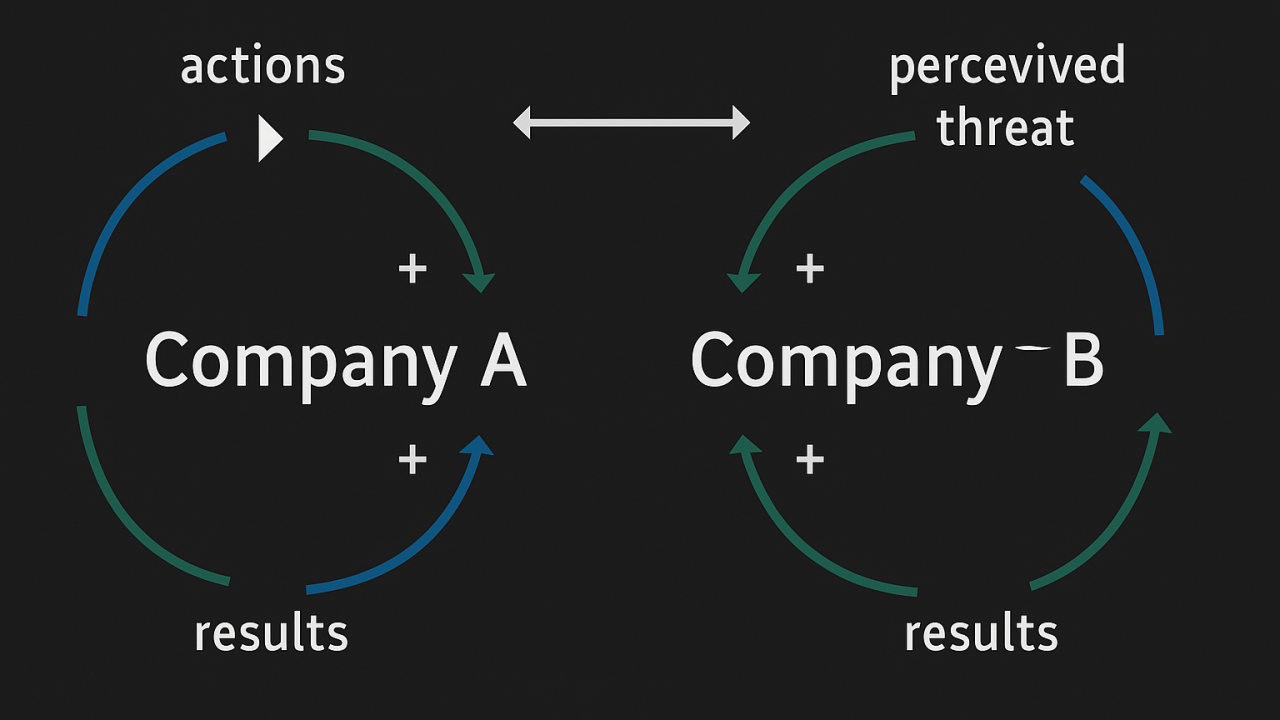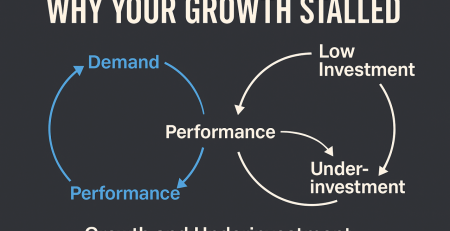The Escalation Trap: A Tale of Two Law Firms
Today? Outthinking escalation and how to only play the games you can win.
What if your competitor (or spouse or whoever) isn’t the problem? What if it’s the system you’ve allowed yourself to participate in?
In a mid-size city in Texas, two of the city’s most recognized firms were locked in an aggressive rivalry for the business of a massive company that would be moving into the area. Let’s call them Firm A and Firm B.
Firm A ran a massive billboard campaign: highways, buses, park benches. Within weeks, Firm B responded with more billboards, bigger headlines, flashier messaging.
Then Firm A escalated again. A new round of digital ads and a fancy office renovation. Firm B followed with influencer sponsorships and local event takeovers.
Each was reacting to the other. But neither was thinking clearly.
The cycle continued until both were overextended, exhausted, and burning money. They had turned their operations into a battle of appearances while neglecting referrals, client care, and operational efficiency.
AND…in their distraction and arrogance not noticing: Firm C.
Firm C had no flashy billboards and did not involve themselves in the PR and Marketing war. They had operated for years on a focused strategy: building trust and excellence with local financial planners, realtors, CPAs, and other trusted professionals.
Within a year, Firm C had quietly overtaken them both. They had more referrals and revenue and they won the business of the new company the other two were fighting over. Not because they fought harder, but because they refused to play the escalation game. They stayed focused. They stayed responsive and consistent while non-reactive; unattached.
That’s what Peter Senge calls the Escalation Archetype in systems thinking.
The Escalation Trap
Senge described Escalation as what happens when two players (people, teams, companies, even nations) perceive each other’s actions as threats. They then respond by pushing harder, faster, louder.
Each side thinks they’re defending their position and fighting for their cause. But in reality, they’re reinforcing the other side’s behavior. It becomes a loop. We’ve all seen it. We’ve all done it or participated in it at some level.
The harder the push, the more the competitor is forced to do the same. And it escalates until both sides lose clarity, control, and margin. Unless they opt out.
In your business, you may not be battling a billboard and PR war, but the pattern is everywhere.
Escalation in Business Looks Like:
- Marketing races: Chasing trends and tactics to stay visible instead of building resonance.
- Pricing wars: Lowering prices to compete, then sacrificing quality or sustainability.
- Hiring games: Outbidding talent competitors without a clear role or culture fit.
- Sales pushes: Sending more and more outreach without re-evaluating message quality.
- Feature competition: Adding complexity just to match someone else’s roadmap.
Let’s be honest: Sometimes force wins. But only under rare, brutal conditions most companies can’t survive. Each move seems rational. But step back and the pattern is mechanical. You’re no longer choosing or leading. You’re reacting.
When Escalation by Force Works. And Why It’s Rare
In rare cases, a company wins the escalation game by sheer dominance. Walmart is the classic example. When competitors tried to undercut them on price, Walmart didn’t back down. They doubled down. They escalated harder.
They pressured suppliers, squeezed logistics, and optimized every inch of their operation to ensure their “Everyday Low Prices” stayed unmatched. Competitors blinked first. Many folded.
It worked, but only because Walmart had:
- Enormous scale
- Unrivaled supply chain power
- Relentless operational efficiency
- A culture built for margin warfare
In another domain, Amazon played a similar game absorbing losses for years to win market share, then consolidating power once rivals were worn down. Their version of escalation? Speed, convenience, and an infrastructure moat no one else could afford to match.
Tesla, too, escalated by committing to vertical integration, building gigafactories, and taking huge strategic risks while legacy automakers hesitated. But again, this only worked because of a first-mover advantage and a founder with unusual risk tolerance and execution strength.
Here’s the Catch
Force only works when you have:
- Deep reserves (capital, talent, time)
- Structural leverage (influence over suppliers, data, or customer habits)
- Execution precision that compounds faster than your opponent’s
99.9% of us don’t have these advantages and/or can’t build them fast enough. If you don’t have those? Escalating harder often just accelerates your collapse.
You burn cash. Burn trust. Burn out your team. Burn deals you’re competing for like our two law firms above. And you teach your rival how to beat you next time.
A Smarter Play
Instead of trying to out-escalate the competition, shift the game:
- Redefine the battlefield (e.g. niche positioning, brand story, unique offer)
- Disengage from dead-end escalation and double down on strategic advantage
- Change the metric(s) that matters (e.g. trust instead of clicks, relevance instead of noise)
Like Firm C, the smartest players change the system not just their moves.
Ask: Are we competing… or reacting? Do our decisions come from principle or from pressure? Look for the assumption that drives escalation. It’s usually fear: of losing relevance, clients, control.
Don’t outdo them. Out-think them. Focus on outcomes your competitor is ignoring like client retention, healthy culture, thought leadership, or margin health.
Remember: Escalation thrives on insecurity. When your offer, story, and delivery are rooted in truth and No-BS you’re immune to noise. You also sleep better at night.
The Systems So Far:
- Limits to Growth: Internal friction silently caps your upside, even as you push harder.
- Shifting the Burden: Quick fixes delay (and often prevent) deeper solutions.
- Success to the Successful: Early momentum compounds and locks others out.
- Escalation: You’re not just reacting to problems. You’re trapped in reaction to others.
Escalationadds a relational layer: You’re not just battling yourself or your limits or positioning. You may be caught in a reactive loop with someone else. If so, it’s time to exit the downward spiral.
And the worst part? The loop feels like strategy or momentum when it’s just reaction and adrenalin. It’s easy to get sucked into the game and wake up too late, burned out.
Your Move This Week:
Ask these questions:
- Where are we or am I escalating just to keep pace?
- What fear is driving that behavior?
- What principle would help us break the loop?
- Is losing to a third party worth the risk?
Then make the shift. Not louder. Not faster. Clearer. So your growth becomes strategic not just competitive.
See you next Saturday.




Leave a Reply